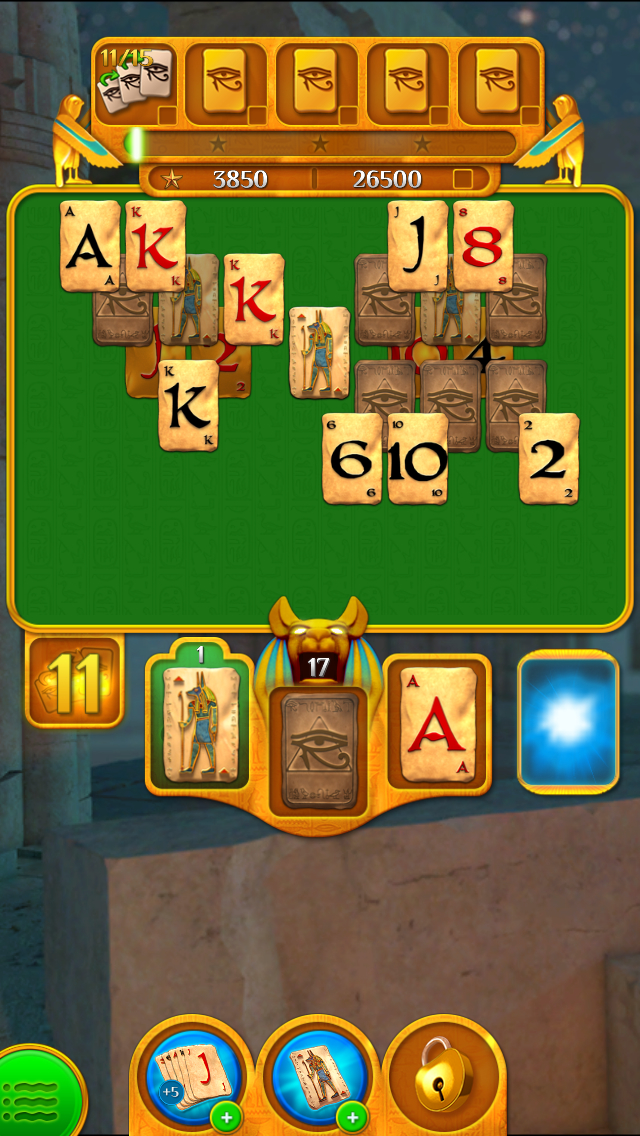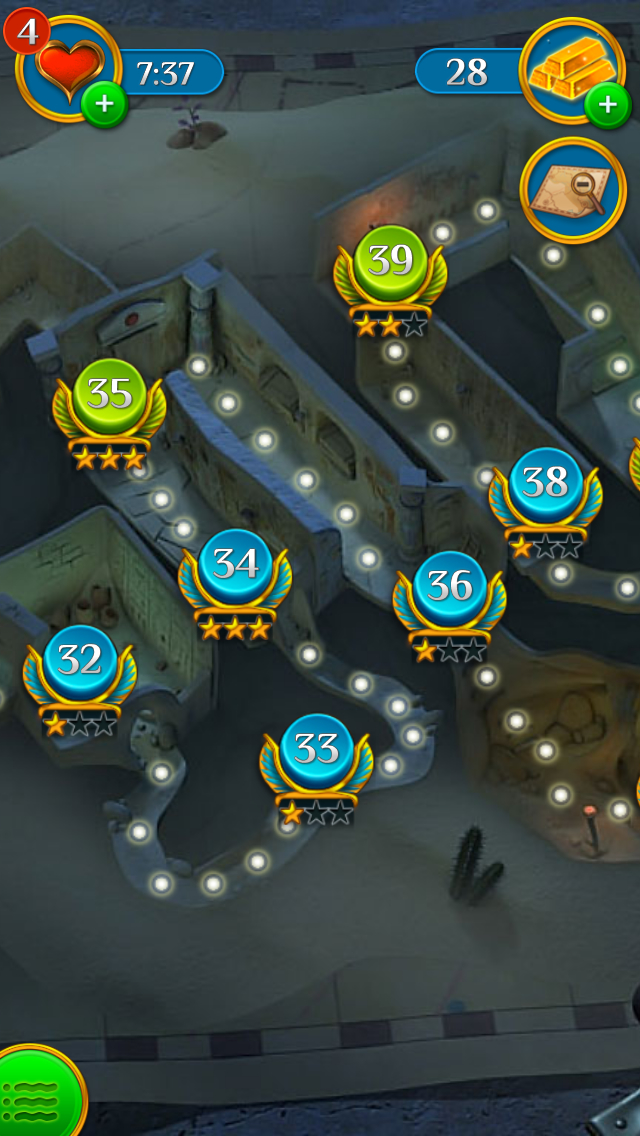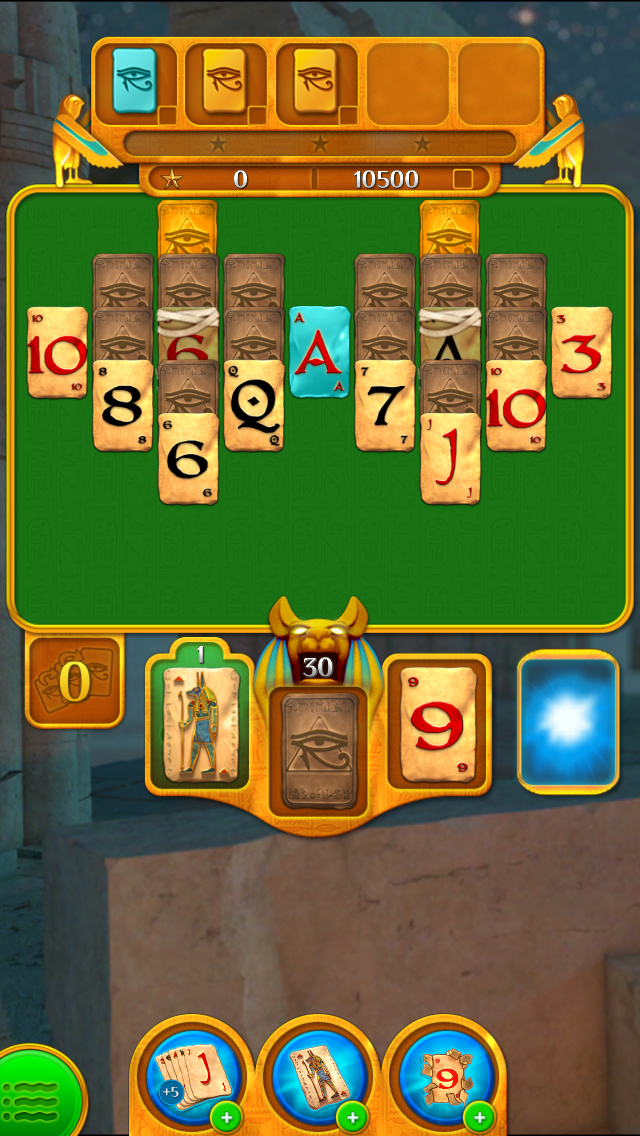 When I was a kid, nobody ever played solitaire. You would see people playing it in the movies, usually in prison or something like that, but there were a million things more fun to do than play solitaire even if you were alone, such as counting the lines on the carpet pattern. That all changed with the advent of home computers becoming the norm instead of an exception, especially once the Internet started existing in the basic form we know it as today. Suddenly there was all kinds of waiting to do, and a game of solitaire was just a couple of clicks away, no shuffling or cleaning up required. You could even choose the design for the back of the cards! These were the salad days for solitaire. As the Internet and computers themselves became faster, and equally mindless but more colorful timewasters became prevalent, solitaire faded back into the pits from whence it came.
When I was a kid, nobody ever played solitaire. You would see people playing it in the movies, usually in prison or something like that, but there were a million things more fun to do than play solitaire even if you were alone, such as counting the lines on the carpet pattern. That all changed with the advent of home computers becoming the norm instead of an exception, especially once the Internet started existing in the basic form we know it as today. Suddenly there was all kinds of waiting to do, and a game of solitaire was just a couple of clicks away, no shuffling or cleaning up required. You could even choose the design for the back of the cards! These were the salad days for solitaire. As the Internet and computers themselves became faster, and equally mindless but more colorful timewasters became prevalent, solitaire faded back into the pits from whence it came.
 Nowadays, solitaire can only get by with a little help from its friends. Virtually no one wants to play straight Klondike solitaire any more than they want to do math problems if they can help it, but variants remain appealing, particularly if you twist in some ideas from other games. The most popular variants of solitaire on the App Store are Spider and Pyramid. Spider games tend to use a pretty plain theme, perhaps in an attempt to evoke Microsoft’s popular Spider Solitaire PC game, while Pyramid games seem to be content with the low-hanging fruit that is an Egyptian theme. In terms of gameplay, Spider is somewhat similar to the popular Klondike game, while Pyramid feels a little bit more like Mahjong solitaire, where you have to get to the bottom of a pile by working from the outside in. It’s a digging game, and you know how I love those.
Nowadays, solitaire can only get by with a little help from its friends. Virtually no one wants to play straight Klondike solitaire any more than they want to do math problems if they can help it, but variants remain appealing, particularly if you twist in some ideas from other games. The most popular variants of solitaire on the App Store are Spider and Pyramid. Spider games tend to use a pretty plain theme, perhaps in an attempt to evoke Microsoft’s popular Spider Solitaire PC game, while Pyramid games seem to be content with the low-hanging fruit that is an Egyptian theme. In terms of gameplay, Spider is somewhat similar to the popular Klondike game, while Pyramid feels a little bit more like Mahjong solitaire, where you have to get to the bottom of a pile by working from the outside in. It’s a digging game, and you know how I love those.
With that in mind, I was sort of looking forward to King’s take on the game, Pyramid Solitaire Saga (Free). I enjoy King’s games well enough to a point, and since solitaire is already a game where your ability to proceed is heavily influenced by pure luck, one of my big reoccurring problems with King’s games might be masked. What I got wasn’t exactly what I had expected or hoped for, but it’s still an okay puzzle game on its own merits. My first disappointment is that they opted to go for the Egyptian theme. It has to be one of the most overused themes in all of puzzle gaming, and as I mentioned, almost every Pyramid game on the App Store already uses it. I mean, I get it, ‘pyramid’ is right there in the name, and we generally think of the ancient Egyptians as pretty clever people who probably dabbled in tile matching puzzles all day long, but this theme just does nothing for me anymore.
 That’s just a surface nitpick, however. In other respects, this is basically what you would expect from a King game. The rules of the game are a bit different from the usual Pyramid set, since instead of matching cards that add up to 13, you’re looking to remove cards that immediately follow or precede the number of the card at the top of your deck. You can use a joker as a wild card, and you can move the top card of your deck into a reserve spot for future use. In typical King style, this is a stage-based affair, with each level having different layouts and one of several goals, but for the most part, you’re looking to remove the gold cards sitting at the bottom of the piles and score enough points to pass the threshold. You’ll occasionally be directly tasked to do other things on the way, like removing a certain number of cards in a row without discarding. There are sometimes indirect obstacles, like locks and keys or vines that require that you remove certain cards before you can access others. They’re all just variations on the central theme of removing obstructions to clear a path to the bottom, however.
That’s just a surface nitpick, however. In other respects, this is basically what you would expect from a King game. The rules of the game are a bit different from the usual Pyramid set, since instead of matching cards that add up to 13, you’re looking to remove cards that immediately follow or precede the number of the card at the top of your deck. You can use a joker as a wild card, and you can move the top card of your deck into a reserve spot for future use. In typical King style, this is a stage-based affair, with each level having different layouts and one of several goals, but for the most part, you’re looking to remove the gold cards sitting at the bottom of the piles and score enough points to pass the threshold. You’ll occasionally be directly tasked to do other things on the way, like removing a certain number of cards in a row without discarding. There are sometimes indirect obstacles, like locks and keys or vines that require that you remove certain cards before you can access others. They’re all just variations on the central theme of removing obstructions to clear a path to the bottom, however.
Since this is a King game, you can probably guess a lot of the other details. You have a set number of lives, and failing a stage consumes one of them. If you run out, you can either wait for them to be restored or pay up some premium currency. The game also offers a selection of boosts, with the first taste of each being free but further usage requiring a fair chunk of change. You can also fork over premium currency for five extra cards if you come up short in a level, and you’ll need to pay up, bug a Facebook friend, or wait when you reach a gate on the world map. Of course, it’s a very tough game, and it’s not always fair about it. In fact, it’s probably more transparent about that than ever. Like in Bubble Witch 2 Saga (Free), it’s very easy to spot that the game hasn’t given you the pieces you need to beat a level. It’s even more noticeable here, since it’s easier to remember specific cards than it is to count off colors of bubbles in your head. It’s also very obnoxious about pushing a Facebook link, with the app automatically opening up my Facebook app several times without any prompt.
 The art seems to have been done by whoever worked on Bubble Witch 2 Saga, so like that game, Pyramid Solitaire Saga looks pretty nice, surprisingly. I’m not a fan of the theme, but everything is quite detailed and clear, and the characters don’t look like the soul-reaping devil animals from Pet Rescue Saga (Free), so I’ll chalk that up as a victory for the game. The music and sounds also fit the typical Egyptian theme, but I’m at least happy King has moved away from using the music to mock you when you lose. As usual, Game Center is not implemented in the game, so you’ll have to imagine your own achievements and keep a dry erase leaderboard on your fridge.
The art seems to have been done by whoever worked on Bubble Witch 2 Saga, so like that game, Pyramid Solitaire Saga looks pretty nice, surprisingly. I’m not a fan of the theme, but everything is quite detailed and clear, and the characters don’t look like the soul-reaping devil animals from Pet Rescue Saga (Free), so I’ll chalk that up as a victory for the game. The music and sounds also fit the typical Egyptian theme, but I’m at least happy King has moved away from using the music to mock you when you lose. As usual, Game Center is not implemented in the game, so you’ll have to imagine your own achievements and keep a dry erase leaderboard on your fridge.
It’s a well put-together game technically, and I enjoy the sometimes merciless challenge of King games, but I feel like the more obvious they are about the heavy influence of luck on your outcomes, the less satisfying the games are. Solitaire is, at its heart, a game where you pray your random shuffle has produced a winnable result, but with the illusion laid bare amid all kinds of pitches entreating you to spend money to get around a poor draw, it’s just not as enjoyable as it could be. There are times where you make clever moves and feel like you’re beating the odds, but they’re easily outnumbered by the times where you discard card after useless card, cursing the developer and those blasted ancient Egyptians for wasting your time with a bad hand. That’s solitaire, I guess, and that’s probably why I played Doom while I waited 45 minutes for one song to download.